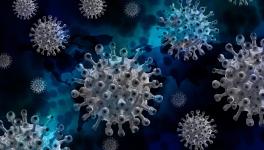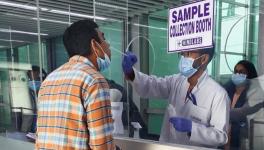Omicron BA.2 Sub-Variant: What We Know So Far
Omicron is still driving the pandemic as the dominant variant in the majority of the places worldwide. It has become a well-established fact that Omicron has an extraordinary capacity of spreading; however, the good thing is it seems to be causing less severity of disease among the infected. While the Omicron continues to concern the world, its sub-variant, namely the BA.2 variant, has raised even more serious concerns. It is especially due to the latest study from Japan, which claimed that BA.2 could cause more severe diseases like that of Delta in lab studies. Notably, the study was conducted in Hamsters, and the researchers found that BA.2 is capable of evading immunity like the original Omicron variant and can also cause more severe diseases.
This has also raised concerns in the international sphere with the demand that BA.2 should be included in the ‘variant of concern’ category. To understand the dangers of BA.2 and its probable implication for the Indian Covid scenario coupled with what could be said definitively, Newsclick approached eminent immunologist Satyajit Rath of IISER (Indian Institute of Science Education and Research), Pune.
NewsClick (NC): The BA.2 is the stealth variant as it cannot be easily detected in a PCR test. Lately, it has been claimed in the international circle of experts that this sub-variant should be considered a variant of concern, especially after a Japanese study claiming that BA.2 can spread fast and cause the severity of the disease. How do you see this? Do we know whether BA.2 is a deadly variant or the concerns are precautionary only?
Satyajit Rath (SR): The 'stealth' terminology is more dramatic than useful. It quite emphatically does not mean that BA.2 cannot be detected in a PCR test. Quite the opposite. It is indeed well detected; only that its strain identity is not indicated in the PCR test results. All this mess starts with the original finding that SOME (but not in all) of the various RT-PCR kits sold in the market in 2020/2021 can give slightly odd results indicating that the sample may well contain a virus of the Omicron BA.1 lineage. Most such kits test for the presence of SARS-CoV-2 virus genetic material at three different locations in the viral genetic code. These odd result-giving test kits use the viral spike protein gene as one of their three targets. Since the genetic code of the BA.1 spike protein differs quite a bit from earlier 2020/2021 virus strains, that is not detected, so the test shows up as 'positive' for two out of three viral genes. This 'S-drop' suggests the likelihood of the BA.1 virus. The BA.2 virus lineage does not show this 'S-drop', so it was promptly labelled the 'stealth variant'. However, this kind of identification is not definitive anyway, and it is full genetic sequencing that establishes virus strain and lineage identity.
There is indeed some indication, especially from the epidemiological evidence in Denmark, that the BA.2 strain may spread a bit more rapidly than the BA.1 strain (both belong to the omicron family of strains). BA.1 already spreads much more rapidly than earlier strains, so it is not clear what the consequences of this increase in BA.2's rate of spread might be.
The Japanese study on the BA.2 virus strain simply suggests that it may cause a bit more severe disease in hamsters than the BA.1 strain. That is not evidence from human studies. There is no evidence I know of indicating that BA.2 may be causing more severe illness in humans than the BA.1 strain. SARS-CoV-2 causes diseases that differ quite a lot in their detail between hamsters and humans, so simple extrapolation of hamster evidence to humans should not be done without further evidence.
NC: There have been sayings that BA.2 can cause havoc in India as well. But recently, Dr Rajeev Jayadevan, the co-chairman of IMA’s National Covid Taskforce, commented that BA.2 is not likely to cause any surge in India. He also commented that those who were previously infected with BA.1 will be spared from infection by BA.2. How do you see this?
SR: Again, all evidence is preliminary as yet. However, while there is good evidence that, in many (but not all) countries, the BA.2 virus strain has been replacing the BA.1 virus strain, none of those situations has shown a rise in case numbers accompanying this replacement. So the plausible view seems to be that BA.1 exposure may well protect to a good extent against BA.2 infection.
NC: Can we derive a conclusion from the data of the Covid situation in India whether BA.2 is going to be a cause of concern?
SR: We should not be worried as yet, though we should be cautious and wait and watch. However, our major problem in India is more basic; the scale and system of our virus testing and our virus genetic sequencing are still below what is needed, BA.2 or no BA.2.
Get the latest reports & analysis with people's perspective on Protests, movements & deep analytical videos, discussions of the current affairs in your Telegram app. Subscribe to NewsClick's Telegram channel & get Real-Time updates on stories, as they get published on our website.
























